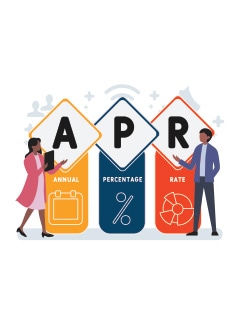CKYC Registry
-
Customer Service Contact us Service request Locate a branch
Find all the help you need
Scan the QR, get our app, and find help on your fingertips

Help CenterSupport topics, Contact us, FAQs and more
-
Login
Are you ready for an upgrade?
Login to the new experience with best features and services
-
Login
Are you ready for an upgrade?
Login to the new experience with best features and services
- Accounts
-
Deposits
IDFC FIRST Bank Deposits
View all Deposits -
Loans
IDFC FIRST Bank Loans
View all Loans - Wealth & Insure
-
Payments
IDFC FIRST Bank Payments
View all Payments -
Cards
IDFC FIRST Bank Cards
View all Cards - Blogs
- Corporate Account
-
Cash Management Services
IDFC FIRST Bank Cash Management Services
View all Cash Management Services - Supply Chain Finance
-
Corporate Lending
IDFC FIRST Bank Lending
View all -
Treasury
IDFC FIRST Bank Treasury
See more details - NBFC Financing
Support topics, Contact us, FAQs and more
- IDFC FIRST Bank Accounts
-
Savings Account
-
Corporate Salary
Account -
Senior Citizens
Savings Account -
First Power
Account -
Current Account
-
NRI Savings
Account -
TASC Institutional
Account -
Savings Account
Interest Calculator
- IDFC FIRST Bank Deposits
-
Fixed Deposit
-
Recurring Deposit
-
NRI Fixed Deposit
-
Safe Deposit Locker
-
FD Calculator
-
RD Calculator
- IDFC FIRST Bank Loans
-
Personal Loan
-
Consumer Durable
Loan -
Home Loan
-
Business Loan
-
Professional Loan
-
Education Loan
-
New Car Loan
-
Pre-owned Car Loan
-
Two Wheeler Loan
-
Pre-owned Two
Wheeler Loan -
Commercial Vehicle
Loan -
Gold Loan
-
Loan Against Property
-
Loan Against Securities
-
Easy Buy EMI card
-
Personal Loan
EMI Calculator -
Education Loan
EMI Calculator -
Home Loan
EMI Calculator
- IDFC FIRST Bank Wealth & Insure
-
FIRST Select
-
FIRST Wealth
-
FIRST Private
-
Mutual Funds
-
Sovereign Gold Bond
-
Demat Account
-
Term Insurance
-
Life Insurance
-
Health Insurance
-
General Insurance
-
Bonds
-
Loan Against
Securities -
Portfolio Management
Service
- IDFC FIRST Bank Payments
-
FASTag
-
Credit Card
Bill Payments -
UPI
-
Funds Transfer
-
Forex Services
-
Pay Loan EMI
- IDFC FIRST Bank Cards
-
Ashva :
Metal Credit Card -
Mayura :
Metal Credit Card -
FIRST Millennia
Credit Card -
FIRST Classic
Credit Card -
FIRST Select
Credit Card -
FIRST Wealth
Credit Card -
FIRST WOW!
Credit Card -
Deals
-
Debit Cards
-
Co-branded Cards
-
Credit Card
EMI Calculator -
FIRST Corporate
Credit Card -
FIRST Purchase
Credit Card -
FIRST Business
Credit Card
- Premium Metal Credit Cards
-
AshvaLifestyle1% Forex₹2,999
-
MayuraLifestyleZero Forex₹5,999
-
FIRST PrivateInvite Only
- Best for travellers
-
MayuraZero ForexMetal₹5,999
-
Ashva1% ForexMetal₹2,999
-
FIRST WOW!Zero ForexTravelLifetime Free
-
FIRST SWYPTravel OffersEMI₹499
-
FIRST Select1.99% ForexLifestyleLifetime Free
-
FIRST Wealth1.5% ForexLifestyleLifetime Free
-
Club VistaraTravelLifestyle₹4,999
-
IndiGo IDFC FIRST Dual Credit CardTravelLifestyle₹4,999
- Max benefits, Free for life
-
FIRST Classic10X RewardsShoppingNever Expiring Rewards
-
FIRST Millennia10X RewardsShoppingNever Expiring Rewards
-
FIRST Select10X RewardsLifestyle1.99% Forex
-
FIRST Wealth10X RewardsLifestyle1.5% Forex
-
FIRST WOW!RewardsTravelZero Forex
-
LIC ClassicRewardsInsuranceShopping
-
LIC SelectRewardsInsuranceShopping
- Reward Multipliers
-
AshvaLifestyleMetal₹2,999
-
MayuraLifestyleZero Forex₹5,999
-
FIRST ClassicNever Expiring RewardsShoppingLifetime Free
-
FIRST MillenniaNever Expiring RewardsShoppingLifetime Free
-
FIRST SelectNever Expiring RewardsLifestyleLifetime Free
-
FIRST WealthNever Expiring RewardsLifestyleLifetime Free
- Rewards & Credit on UPI
-
FIRST Power+FuelUPI₹499
-
FIRST PowerFuelUPI₹199
-
FIRST EA₹NVirtual1% Cashback₹499
-
FIRST DigitalVirtualUPI₹199
-
IndiGo IDFC FIRST Dual Credit CardUPITravelDual cards
- Fuel and Savings
-
FIRST PowerRewardsUPI₹199
-
FIRST Power+RewardsUPI₹499
-
LIC ClassicRewardsInsuranceShopping
-
LIC SelectRewardsInsuranceShopping
- Express and Flaunt
-
AshvaMetal1% Forex₹2,999
-
MayuraMetalZero Forex₹5,999
-
FIRST SWYPEMIOfferMAX₹499
-
FIRST MillenniaRewardsShoppingLifetime Free
- FD Backed rewarding Credit Cards for all
-
FIRST EA₹NVirtualCashback₹499
-
FIRST WOW!Zero ForexTravelLifetime Free
-
CreditPro Balance TransferTransfer & SaveReduce InterestPay Smartly
- IDFC FIRST Bank NRI Forex Solutions
-
Send money to India-Wire transfer
-
Send money to India-Digitally
-
Send money abroad
-
Max Returns FD (INR)
- IDFC FIRST Bank MSME Accounts
-
Platinum Current
Account -
Gold
Current Account -
Silver Plus
Current Account -
Merchant Multiplier
Account -
Agri Multiplier
Account -
TASC Institutional
Account -
Dynamic Current
Account -
World business
Account -
First Startup
Current Account
- IDFC FIRST Bank Business Loans
-
Business Loan
-
Professional Loan
-
Loan Against Property
-
Business Loan for Women
-
Working Capital Loan
-
Construction Equipment Loan
-
Machinery Loan
-
Healthcare Equipment Loan
- IDFC FIRST Bank Business Solutions
-
Payment Solutions
-
Tax Payments
-
Doorstep Banking
-
Point of Sale (POS)
-
Escrow Accounts
-
NACH
-
Payment Gateway
-
UPI
-
Virtual Accounts
-
As per amendment in the Income Tax Rules, PAN or Aadhaar are to be mandatorily quoted for cash deposit or withdrawal aggregating to Rupees twenty lakhs or more in a FY. Please update your PAN or Aadhaar. Kindly reach out to the Bank’s contact center on 1800 10 888 or visit the nearest IDFC FIRST Bank branch for further queries.
-
-
Most Searched
Sorry!
We couldn’t find ‘’ in our website
Here is what you can do :
- Try checking the spelling and search
- Search from below suggestions instead
- Widen your search & try a more generic keyword
Suggested
Get a Credit Card
Enjoy Zero Charges on All Commonly Used Savings Account Services
Open Account Now
We live in a world where everything is just a tap away. And it is not just information that we are referring to. It is applicable to the loan you took for your last holiday and the Credit Card that you are thinking of applying for right now.
With the increased availability of easy loans and credit cards, credit scores have assumed greater significance. The credit score is referred to by financial institutes & banks not only for approving your loan application but also to determine the interest rate applicable to your loan.
Increasingly, many institutions beyond banks have started using credit scores and credit reports, including your next employer before assessing your candidature. Hence, it's imperative to understand your credit score and ways to improve it.
The credit score is a 3-digit number calculated & assigned by a credit bureau indicating the credit worthiness of individuals. There are four credit bureaus in India for individual customers – TransUnion CIBIL, Experian, Equifax and CRIF High Mark. Each bureau has its own proprietary algorithm and scoring model to calculate the credit score. Hence, the credit score may vary from one bureau to another. The score generally ranges between 300 and 900 in India. This means you can have 4 different credit scores, and all are equally valid.
READ MORE
What is a credit score?
Credit score is a number that helps determine whether or not your loan will be approved. It is generated based on your entire credit history and record, and ranges between 300 and 900. A high score implies a good credit history, while a score closer to 300 reflects poor credit behaviour. Hence, there are high chances that your credit card or loan application will be rejected. Any score ranging between 550 and 700 is considered fair.
What are some of the ways you can improve your credit score?
If you are someone with a low credit score, do not lose hope. Over time, you can build your score with some simple, but smart moves. However, remember to practice these moves regularly and keep tabs on your personal EMIs and credit card payments.
1. Set reminders to pay on time
Missed an EMI? Defaulting on your credit card payment? Well, it’s time to get organized. Remember, missing the deadline for your payments not only forces you to pay the penalty but also impacts your credit score big time. So, if you want to come out a winner from this situation, use services that remind you or help you automate your payments, so you do not have to worry about missing your deadlines.
2. Clear your credit card dues
Credit cards come with several benefits and offers, so it’s natural to apply for as many as you can. However, it is also important to adhere to a few guidelines if you want your credit score to be perfect. First, make your monthly payments on time. Second, do not max out on your credit card limit. Third, do not forget the first and second rule. Ever.
3. Maintain a healthy credit mix
There are two types of loans – secured and unsecured loans. If you take many unsecured loans, banks tend to see this in a negative light; so, when you apply for a loan, it has a higher chance of getting rejected. It is best to take a mix of both secured and unsecured loans. Secured loans are the ones in which you offer collateral to the lender in exchange for funds. Auto and home loans fall under this category. As for unsecured loans, they do not attract any collateral. Credit cards fall into the category of unsecured loans.
4. Avoid taking multiple loans at a time
If you apply for too many loans or have a habit of maxing out your credit cards frequently, your score will drop automatically as it is seen as unreliable and credit hungry behaviour. Try to avoid taking a loan unless you absolutely need it and also stay far away from your card limit. These habits will help you build a good credit score.
5. Check for errors in your credit report
If you are someone who always follows the above-mentioned rules, yet see your score dropping, check if there are any errors. It could be due to some suspicious activities on your card or an administrative issue. Whatever it may be, ensure you resolve these issues immediately. Reach out to your bank digitally or in-person to resolve this issue.
6. Clear up all your credit card dues
A lender will go through all your records. Yes, all of them. So if you have any pending dues, make sure to clear them as soon as you can. It may not increase your credit score right away but definitely shows your capability to repay.
7. Avoid being a joint account holder
Try to avoid becoming a joint account holder or guarantor for loans. This is simply because any default from the other party will also be reflected on your credit score.
8. Increase your credit limit
If a bank offers to increase your credit limit, do not say no. However, it does not mean you should increase your monthly expenses; rather be smart about managing your expenses. The simplest trick is to have a higher credit limit and keep your utilization low. This will leave a positive impact on your score.
9. Opt for a longer tenure
If you are planning to get a loan, opt for a longer tenure for repayment. This will ensure your EMIs are low, which will help you never default, delay or skip paying your EMIs on time.
10. Get a secured card
If you opt for a secured credit card from leading banks of the country, against a fixed deposit and repay the balance amount religiously on the due date, you will never have to worry about your credit score.
Now, remember that following these golden rules will only help you build a good credit score over time. After all, Rome wasn’t built in a day, right?
Disclaimer
The contents of this article/infographic/picture/video are meant solely for information purposes. The contents are generic in nature and for informational purposes only. It is not a substitute for specific advice in your own circumstances. The information is subject to updation, completion, revision, verification and amendment and the same may change materially. The information is not intended for distribution or use by any person in any jurisdiction where such distribution or use would be contrary to law or regulation or would subject IDFC FIRST Bank or its affiliates to any licensing or registration requirements. IDFC FIRST Bank shall not be responsible for any direct/indirect loss or liability incurred by the reader for taking any financial decisions based on the contents and information mentioned. Please consult your financial advisor before making any financial decision.
The features, benefits and offers mentioned in the article are applicable as on the day of publication of this blog and is subject to change without notice. The contents herein are also subject to other product specific terms and conditions and any third party terms and conditions, as applicable. Please refer our website www.idfcfirstbank.com for latest updates.























